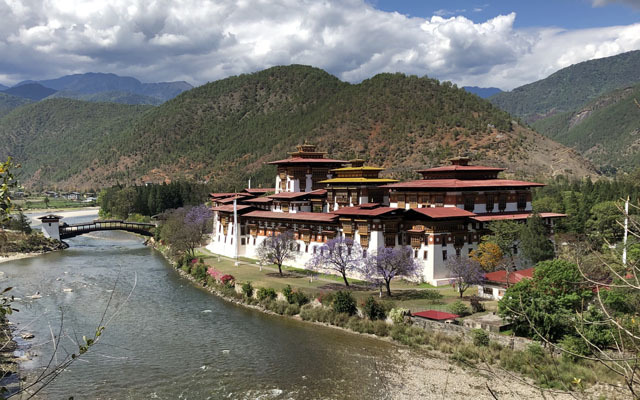Bhutan will reopen its historic and sacred Trans Bhutan Trail for the first time in 60 years on September 28, following two years of extensive restoration and a delayed launch due to the pandemic.
Following the official opening ceremony, exclusive launch partner, G Adventures will begin group programmes on October 2. Two new trekking itineraries are offered and available for booking into 2023 – the 11-day Camp the Trans Bhutan Trail trip which features camping and homestays, and a 12-day Highlights of the Trans Bhutan Trail itinerary with accommodation in homestays, locally-owned guest houses and hotels.

The inaugural trip is already sold out.
Yves Marceau, vice president of product at G Adventures, expressed excitement in bringing tourism dollars back into the local communities.
“We’re honoured to be working with the Bhutan Canada Foundation and the Trans Bhutan Trail to launch this newly restored route in magical Bhutan, and we’re thrilled with how popular the new trips have been, even with the delay in reopening,” said Marceau.
“Trails have historically connected remote communities and helped distribute much-needed income to local people as travellers move across the landscape. Our new trips cover the highlights of the trail as hikers traverse forests and meadows, and travel through rural settlements around the Dzongs. Travellers can expect an average of three to four hours of hiking each day and delicious local meals each night, whether they are camping or staying in homestays, hotels or local guest houses,” Marceau added.
Sam Blyth, chair of the Bhutan Canada Foundation, and lead donor for the Trans Bhutan Trail, said G Adventures was an obvious partner to help relaunch the trail given the company’s long history and success running small group tours and giving back to destinations through its commitment to community tourism.
“As well as providing income opportunities for local people, especially youth, in rural communities, the restoration of the trail is a community-based project designed to preserve an ancient cultural icon and provide a sustainable experience for travellers. Economic benefit will flow directly into the local communities as a result of community tourism, whether via homestays, the purchase of supplies locally for multi-day trips or the employment of local guides,” said Blyth.




















